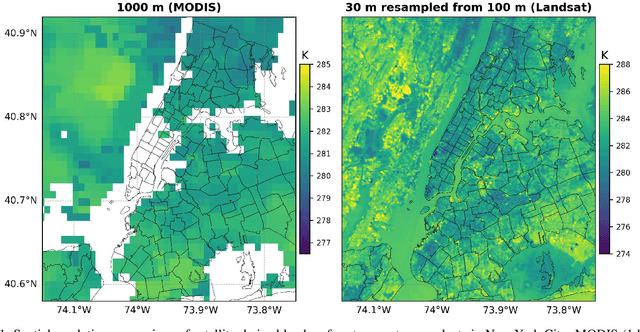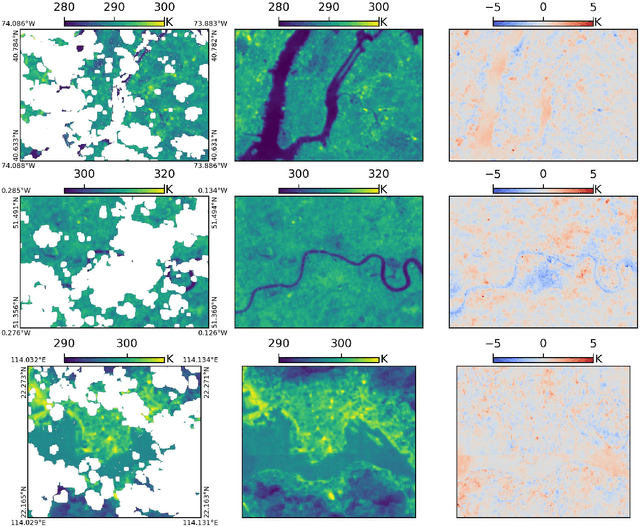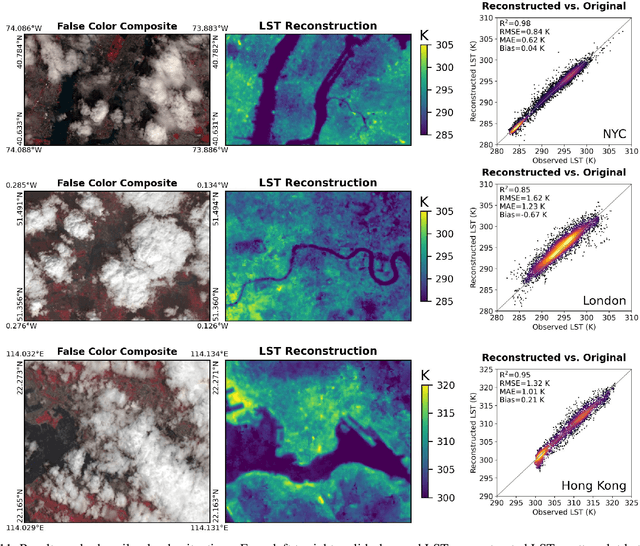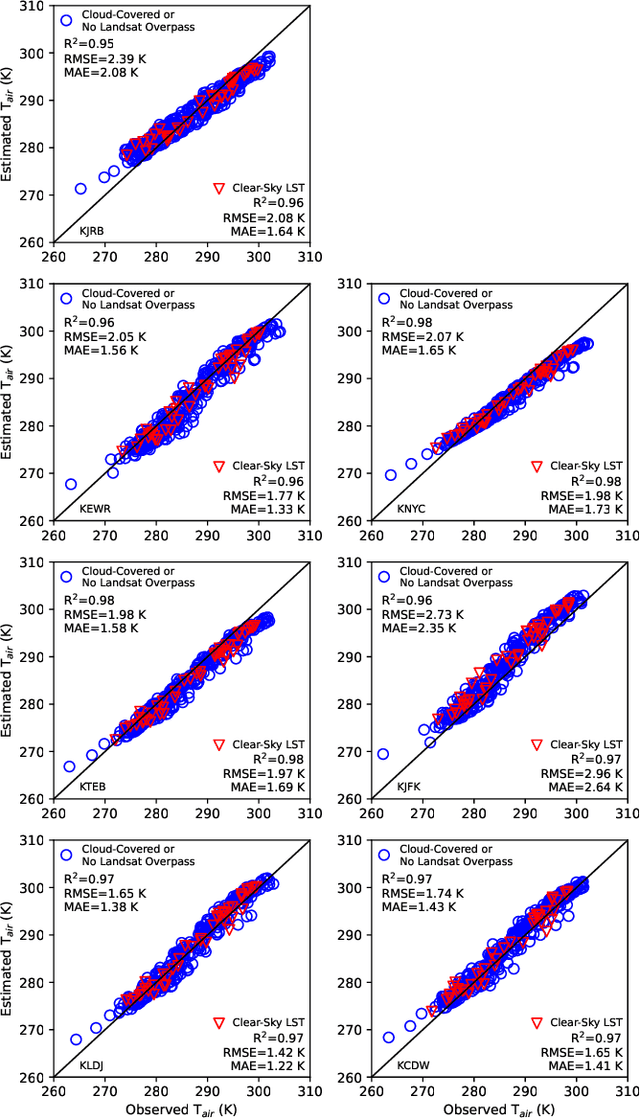Daily Land Surface Temperature Reconstruction in Landsat Cross-Track Areas Using Deep Ensemble Learning With Uncertainty Quantification
Paper and Code
Feb 20, 2025



Many real-world applications rely on land surface temperature (LST) data at high spatiotemporal resolution. In complex urban areas, LST exhibits significant variations, fluctuating dramatically within and across city blocks. Landsat provides high spatial resolution data at 100 meters but is limited by long revisit time, with cloud cover further disrupting data collection. Here, we propose DELAG, a deep ensemble learning method that integrates annual temperature cycles and Gaussian processes, to reconstruct Landsat LST in complex urban areas. Leveraging the cross-track characteristics and dual-satellite operation of Landsat since 2021, we further enhance data availability to 4 scenes every 16 days. We select New York City, London and Hong Kong from three different continents as study areas. Experiments show that DELAG successfully reconstructed LST in the three cities under clear-sky (RMSE = 0.73-0.96 K) and heavily-cloudy (RMSE = 0.84-1.62 K) situations, superior to existing methods. Additionally, DELAG can quantify uncertainty that enhances LST reconstruction reliability. We further tested the reconstructed LST to estimate near-surface air temperature, achieving results (RMSE = 1.48-2.11 K) comparable to those derived from clear-sky LST (RMSE = 1.63-2.02 K). The results demonstrate the successful reconstruction through DELAG and highlight the broader applications of LST reconstruction for estimating accurate air temperature. Our study thus provides a novel and practical method for Landsat LST reconstruction, particularly suited for complex urban areas within Landsat cross-track areas, taking one step toward addressing complex climate events at high spatiotemporal resolution.
 Add to Chrome
Add to Chrome Add to Firefox
Add to Firefox Add to Edge
Add to Edge